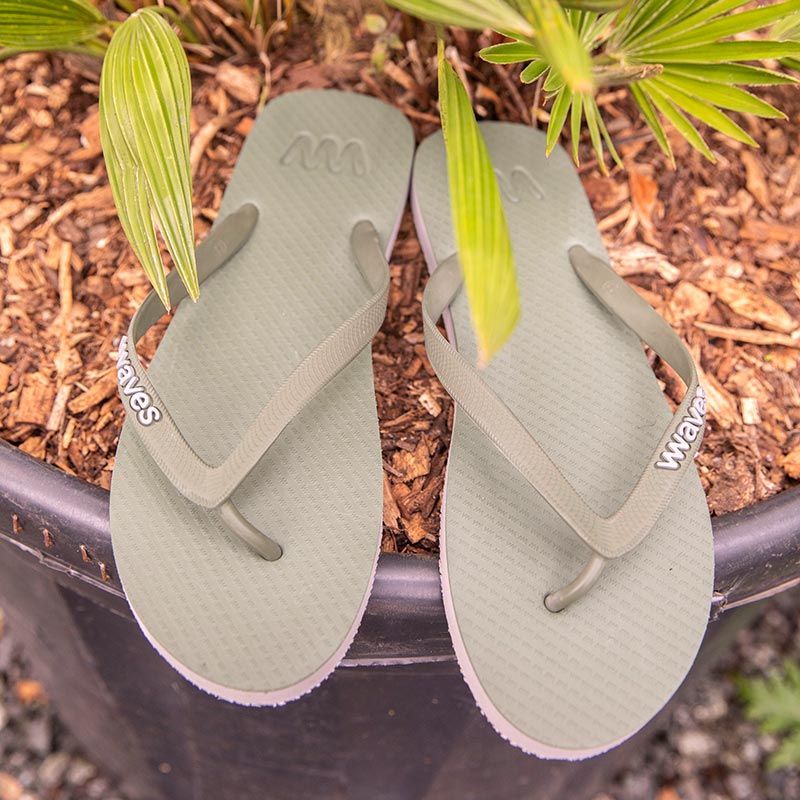If you’re on the hunt for recycled flip flops, you’re in the right place. At Waves Flip Flops we’re committed to finding alternative ways to produce the world’s favourite summer footwear that doesn’t involve the use of plastics or their release into landfill.
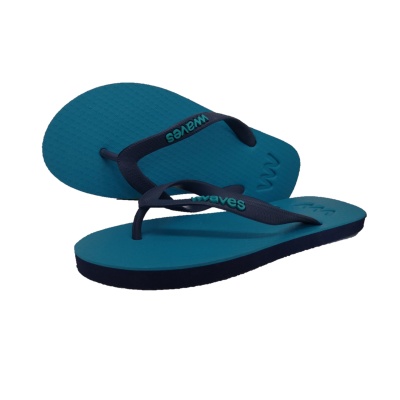
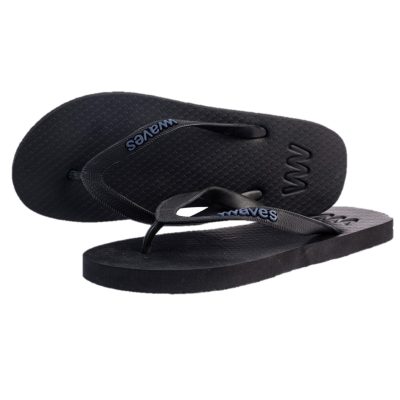
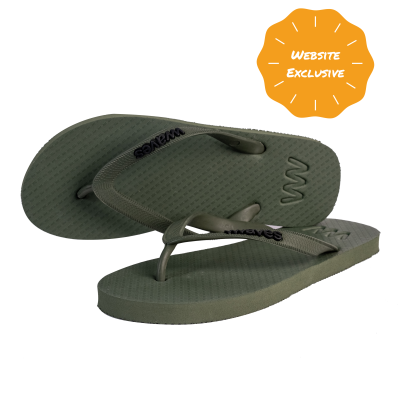
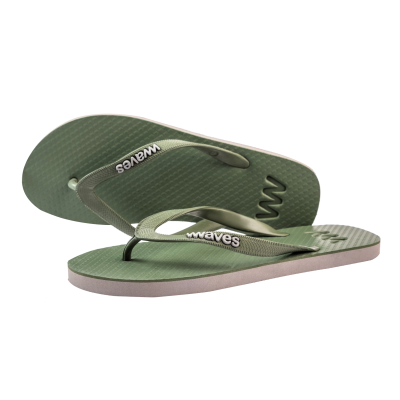
Recycled flip flops are made using plastic that was once used as something else. Garden pots, plastic bags and bin liners can all make their way into standard, recycled footwear.
The problem with plastic recycling however, is that it’s not a real, long-term solution to the world’s plastic crisis. While we commend the fact that companies are reusing plastic consumers no longer need, that plastic will eventually degrade and ultimately find its way to landfill. The route is more circuitous, but the result is the same.
Flip flops from Waves are different. We don’t actually use recycled plastic to make the flip flops themselves. Instead, we make them from 100 per cent natural rubber, a compound that breaks down harmlessly in the ground.
In this way, we believe our take on recycled flip flops are BETTER for the environment than recycled plastic flip flop varieties. They eliminate the risk of plastic entering the natural environment while negating the need to use more finite resources such as fossil fuels.
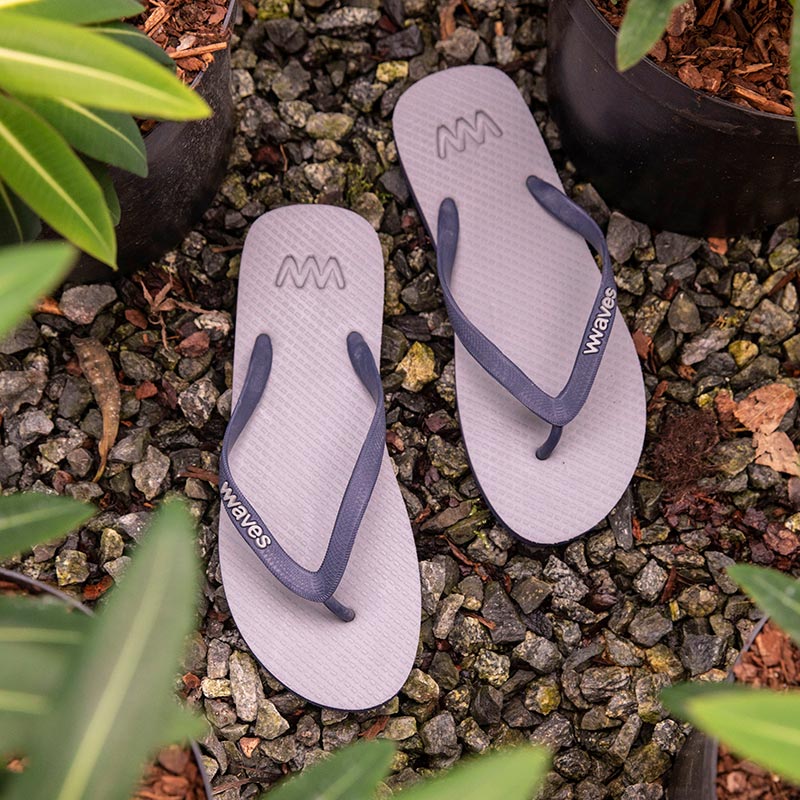
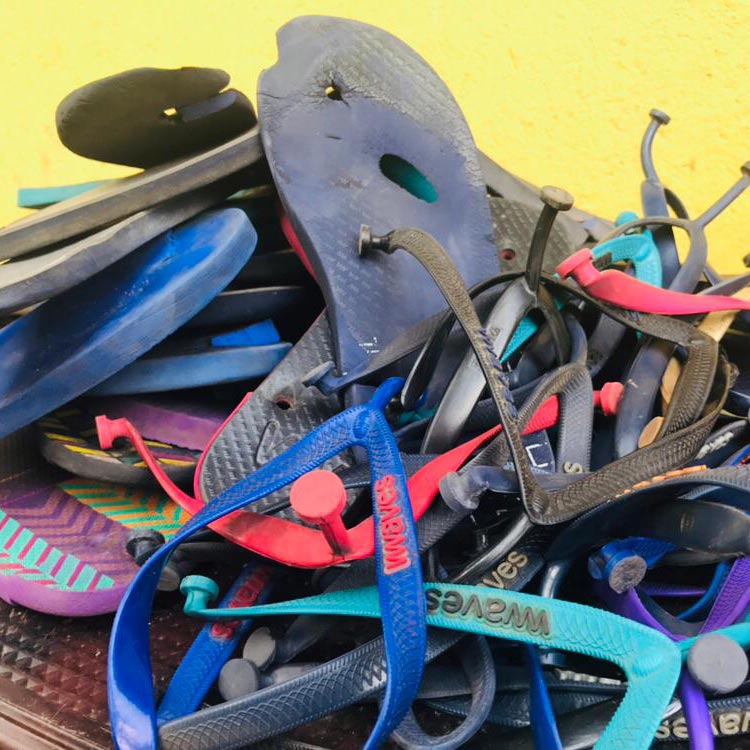
That’s not to say that we don’t recycle at all, we do!
Not only can you recycle plastic, but rubber too. We use discarded rubber flip flops and off-cuttings from our manufacturing process and granulate them, add them into our rubber sheets, and use them in new products. This system cuts down on the total amount of rubber producers need to grow, reducing water, land and energy usage.
Even though we already use a natural, renewable source to make out flip flops, we haven’t stopped there. We take the environment seriously, just like you, and do whatever we can to ensure that the products we make have minimal impact on the natural world.
Recycling is an integral part of our operation; it’s just a little different from the kind of plastic recycling you might find elsewhere. We believe, if you’re an eco-conscious person, there’s no better choice than Waves Flip Flops.
Whether it’s men’s flip flops, women’s flip flops or our unisex collection that you’re interested in you can be sure you’ll be buying much more than just your standard recycled flip flop.

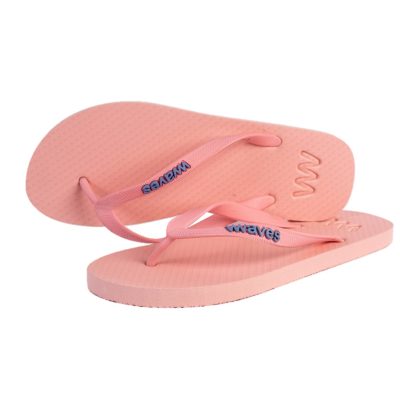
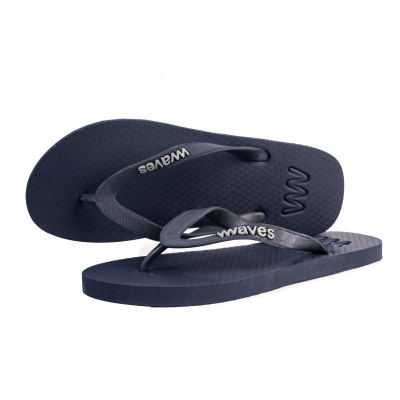
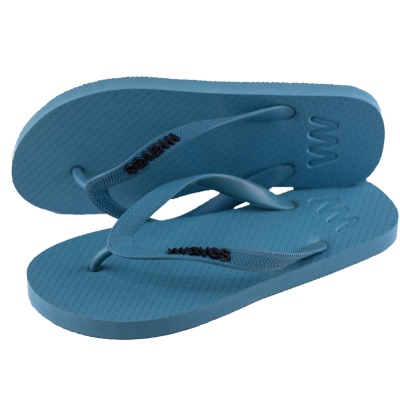
We use Natural Rubber to make our flip flops. This is because of the unique properties it has.
In general, there are two types of polymers: natural and synthetic. Natural polymers include things like natural rubber, while synthetic polymers include all of the man-made plastics derived from crude oil like PET and UPVC there is also a synthetic rubber like material called EVA also derived from a petrol compound.
Natural rubber is harvested from several species of trees and comes out as a kind of milky liquid. The raw polymer comprises a mixture of isoprene units and impurities. Processing removes the impurities and encourages the units to join up into long chains, giving rubber its characteristic properties.
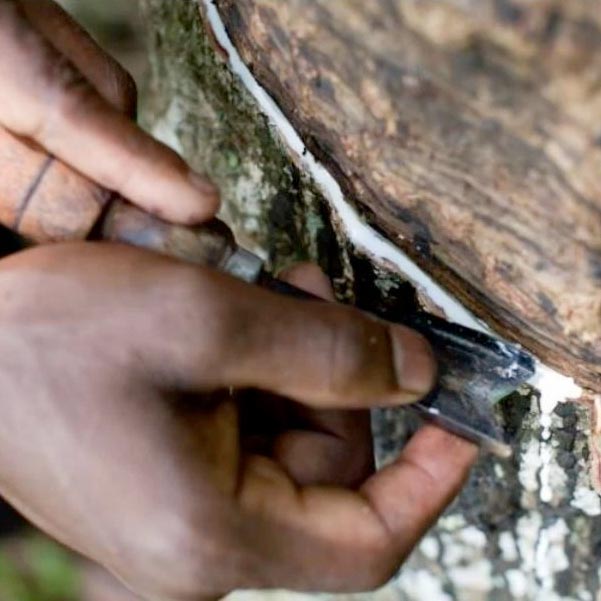

The properties of these chemical chains are what makes natural rubber recycled flip flops so much better for the environment than regular plastic recycled varieties. Bacteria and other organisms have a chemical arsenal that can break the bonds between the chains, processing the constituent components of the rubber, and turning it into harmless waste products. Over millions of years, evolution imbibed species with this ability, turning the rubber we use in our flip flops into a safe, non-toxic benign material.
The same, however, is not true of synthetic plastics or rubbers. Microorganisms can’t break down their chemical bonds, meaning that large fragments of plastic can remain in the environment for hundreds of years as well as micro-plastic and petroleum waste making their way into our oceans.
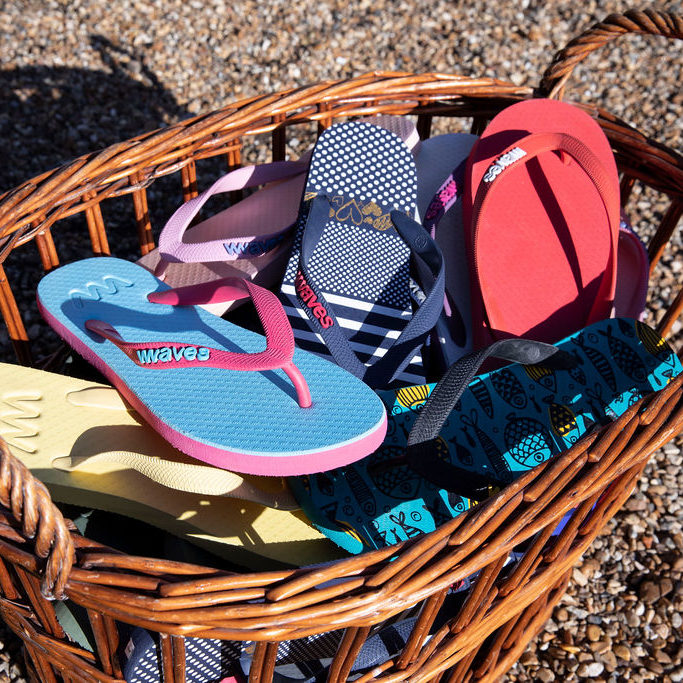
We take pride in the fact our Flip Flops are 100% sustainable. Sustainability is important to us, and all through the process, we’ve made sure everyone involved uses ethical and sustainable methods. Each purchase helps to support Sri Lankan rubber farming communities, allowing them to achieve sustainable and safe livelihoods.
When it comes to environmentally friendly flip flops, there’s simply no better alternative than Waves.
From our natural Sri Lankan rubber to supporting the people who make them, we want to make a difference to the unsustainability of the current flip flop industry, avoiding any use of plastics in the process that can end up on landfill or into our oceans. To make sure your old pair flip flops don’t end up in the landfill you can recycle them with us! Simply send them to us and receive 10% off your next pair of Waves Flip Flops.
The heart of our all-natural rubber recycled Waves flip flops is in Sri Lanka, the large island just off the south coast of India. Not only is the country home to numerous white sand beaches – perfect flip flop territory – but also an abundance of rubber trees.
The pairing of the two has lead to developing our unique flip flops. It made sense to us to utilise more sustainable alternatives that the country offers.
Before long, we began sourcing rubber from the trees that carpet the country’s undulating landscape and making flip flops locally, right in the heart of this south Asian country. Not only that, we also make sure we source rubber from farms that protect our workers and our environment.
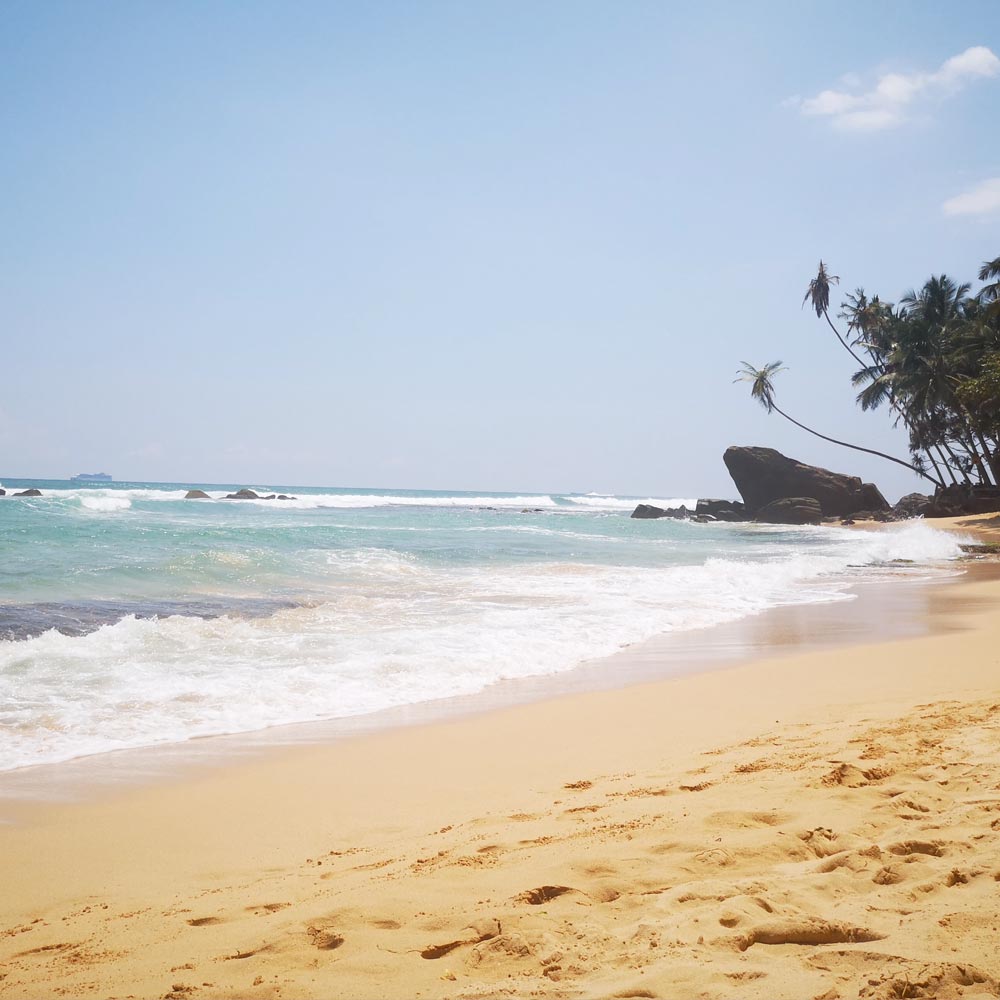
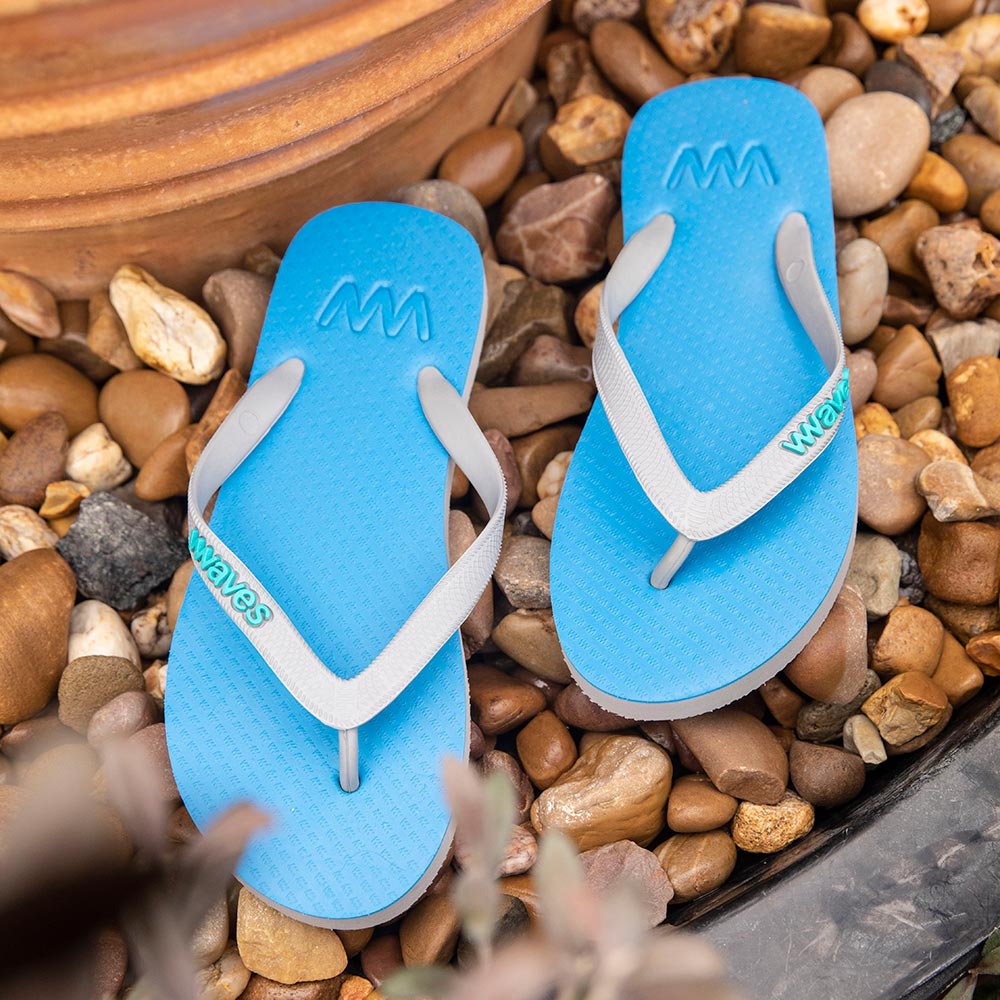
We all love a flip flop, but we wanted to do something about the unsustainable trend in the flip flop industry. While recycled flip flops are available, the vast majority that consumers buy are cheap and disposable which means they quickly find their way to landfills and the oceans.
Currently, around 3 billion people purchase a new set of flip flops every year. Globally, the flip flop market is worth more than $20 billion, which is higher than the sneaker market. Polyurethane foam flip flops are the primary constituent of most products and one of the most significant pollutants of the ocean.
Here at Waves we decided to do something. We realised that flip flop manufacturing had to get closer to the source of rubber instead of shipping it overseas from places like Sri Lanka. We also came to understand that recycled flip flops didn’t go far enough. People needed flip flops that won’t impact the environment negatively. Recycling a plastic flip flop once might only delay it entering the oceans by one year. The only solution was to use a natural compound, one that would provide comfort and practicality and wouldn’t lead to the environmental consequences of regular polyurethane foam.




We’re on a mission to help the planet and reduce plastic waste while also offering beautiful flip flops.
Unlike the recycled plastic, flip flops you read about online, our rubber varieties offer a far more sustainable solution. What’s more, we incorporate natural rubber recycling in our processes, cutting down on land, energy and water use.
When it comes to eco-friendly flip flops, there’s simply no better alternative than Waves.
Do you want to wear more sustainable flip flops? Choose Waves if you’re looking for an even better alternative to recycled flip flops.
We work hard to provide our customers with a planet friendly alternative, to take it one step further, we have also recently launched our flip flop recycling scheme for any brand of flip flop which we will make sure are disposed of responsibly.
Join us today and start wearing flip flops again, guilt-free.
